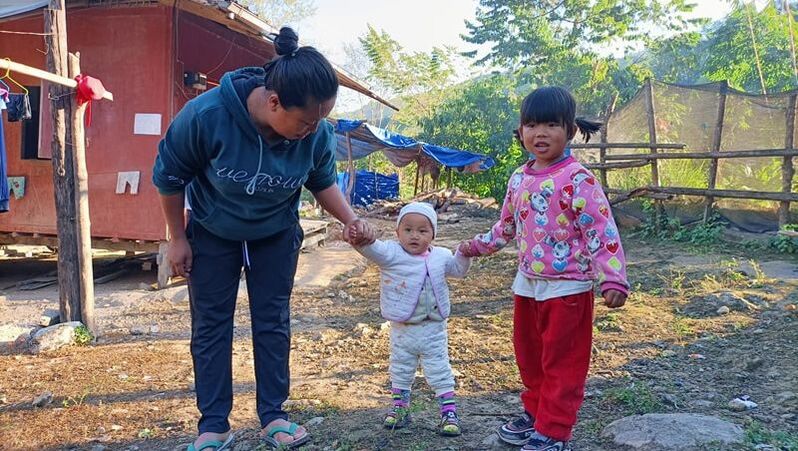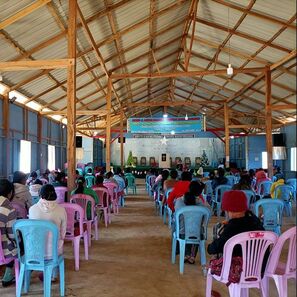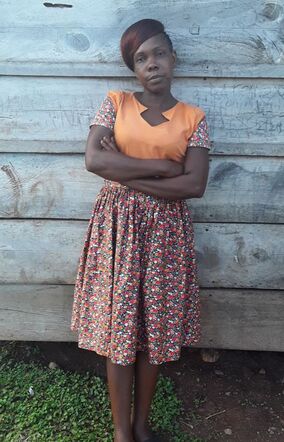|
Children on the Edge works alongside local communities in some of the toughest places in the world to transform the lives of overlooked children by co-creating protective environments where they can safely live, play, learn and grow. To do this, we work closely with the people and places that have the most impact on the child: the family, classroom, community and society. If families lack the resources to meet needs and solve problems, their children are pushed to the edge. They become poorly protected and are at risk of abuse, exploitation, exclusion and neglect, causing irreversible damage. Family is the first line of defence for a child. The single most influential factor in a child’s positive psycho-social development may be having at least one strong relationship with a caring adult. Reinforcing positive parenting practices and encouraging the abandonment of harmful ones, along with supporting parents to provide a stable income and helping them realise the importance of education, all works to create a protective environment where it matters most; at home. We offer training and workshops for parents around the world to help reduce domestic violence and improve relationships at home with their children. We provide education loans so that parents can set up small businesses, providing an income to pay for their child's education. We offer support to families struggling through lockdown; in the form of emergency food parcels, and remote mentoring to help keep them and their children safe. We intervene when we see a child at risk; and work with families to resolve the situation. We continue to ensure children receive an education; helping them get the best start in life. The coronavirus pandemic has made our work more challenging than ever. But the local communities and partners we work with around the world have adapted and have been working tirelessly to continue to build protective environments and transform the lives of the 16,000 children we support. Below you’ll find some examples of how we’ve been strengthening the protective abilities of families to ensure that children are protected through the pandemic. 1. Parenting Workshops for Displaced Families in Kachin State, Myanmar
One mother of seven who attended a recent series of parenting workshops in Munglai Hkyet camp said, “I have five children from my first marriage and two from my second. I have realised that during my first marriage I was shouting and beating my children, and very easily got angry with them. But now, I am aware of the consequences of this anger to my children and I reduce it as much as I can. I am very grateful to be made aware of how to help my children in the process of their physical and mental development." The driver who takes the KWA facilitator to the different areas sits in on the training sessions while he waits, even commented, "I could observe the parent's behaviour changing by listening to them sharing their experiences. This is indeed a very good meeting and should be carried out constantly until they can stand by themselves." 2. Workshops and Training on Preventing Domestic Violence for Parents in Jinja, Uganda Children on the Edge Africa support and train Child Protection Teams (CPTs), made up of volunteers in slum areas in and around Jinja. They provide one to one support and advice to families, and offer community education on how to keep children safe. The teams are a vital link between families and the local services that can support them. The CPTs have been very active in looking out for children and young mothers, along with dealing with child abuse cases during Covid restrictions. The impacts of lockdowns and school closures have meant that children are increasingly vulnerable to exploitation and criminality. We have seen increased domestic abuse, child abuse and (consequently) adolescent pregnancies. The CPTs have worked really hard to try to mitigate these hugely challenging problems by facilitating repeated rounds of workshops on preventing domestic violence for over 400 local parents.
3. Mentoring for Parents in India via Mobile Phones Harsh lockdowns in India have meant that our Learning Centres for Dalit children in and around Patna have only been able to open intermittently over the past year. The major priority has been to resource teachers to mentor families through this difficult time and ensure children’s safety and wellbeing, along with offering education via remote learning. Dalit children are at risk of trafficking, abuse and child labour, issues which have worsened during the Covid-19 crisis.
These sessions have encouraged better communication between parents and children around Covid-19 awareness and helped to build stronger relationships by encouraging them to learn and exercise together each day to stay positive through lockdown. Our work to create protective environments for vulnerable children relies on donations from people like you.
Becoming a regular giver could ensure we can continue to protect children around the world; creating safe spaces full of life, hope, colour and fun. A gift of £4 a month could help 7 community members attend parenting workshops for a year; helping to protect children where it matters most - at home. Support usComments are closed.
|
RECEIVE OUR EMAILSBlog Categories
All
Archives
July 2024
|
|
JOIN US ON SOCIAL MEDIA
|
Annual Report | Contact Us | Jobs | Media Centre | Resources | Shop
Accessibility & Policies: Accessibility | Equity, Diversity & Inclusion Policy | Complaints| Privacy Policy | Safeguarding
Accessibility & Policies: Accessibility | Equity, Diversity & Inclusion Policy | Complaints| Privacy Policy | Safeguarding
Children on the Edge, 5 The Victoria, 25 St Pancras, Chichester, West Sussex, PO19 7LT, UK | 01243 538530 | [email protected]





 Give monthly
Give monthly Fundraise for us
Fundraise for us RSS Feed
RSS Feed
